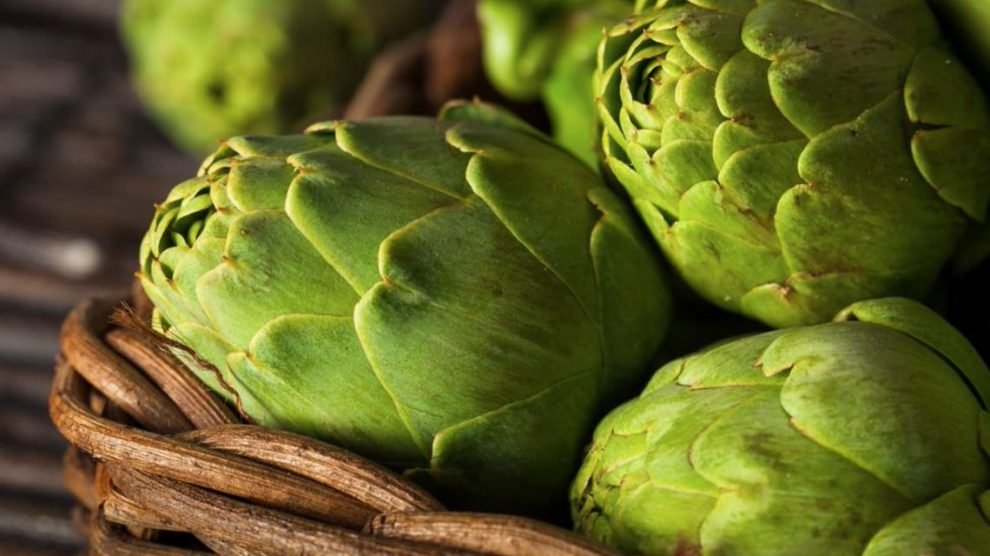The artichoke, due to its content of cynarin and other compounds, is an ideal vegetable for the natural care of the liver and gallbladder.

The artichoke is a vegetable whose popularity has increased enormously in recent years, due to the fact that the so-called artichoke diet became popular some time ago (mainly because some well-known faces followed and defended it), which consisted mainly of consumption of this vegetable as the main food, in addition to others allowed. The truth is that, as we will see, it becomes an ideal food within any varied diet, thanks to the different benefits it provides, especially for the liver and gallbladder.
If we speak, in fact, of what are the benefits that the artichoke offers us, we must refer from the first moment to its nutritional richness, since it provides interesting amounts of both vitamins (vitamin C, B1 and B6) and minerals (potassium, magnesium, phosphorus, calcium, iron). In addition, it is tremendously low in fat and therefore in calories. In fact, 100 grams of artichoke provide just 40 calories and 0.1 grams of fat.
As we have explained to you on one occasion or another, the artichoke is a non-thorny variety of the wild thistle from Mediterranean regions, in such a way that we tend to consume the flower, although its leaves are what give it its important and outstanding therapeutic properties (hence artichoke extract is widely used).
It is not our goal to redound to the benefits of the artichoke, but to echo one of the most important virtues of it: its properties for the liver and for the gallbladder.
Ideal for the liver
The artichoke is an ideal food for both the liver and the gallbladder, since it has a choleretic action that increases bile secretion, so that, for example, it can be very useful in cases of jaundice, poor digestion of the fats, congestion or sluggish liver.
But the virtues of the artichoke for the liver and the gallbladder do not end here, since it helps in the protection of your cells when they are exposed to various toxins. In other words, it is an excellent hepatoprotector, which means that it helps to protect the different cells of the liver, in a totally natural way.
This quality is due to the presence of cynarin, an active principle that we find almost exclusively in this vegetable, and that is capable of capturing free radicals that favor the oxidation of cells (and their subsequent aging). In addition, it provides antioxidant qualities thanks to its bioflavonoid content.
However, as is the case with milk thistle, it has not been shown so far that it helps to regenerate liver cells.
For all these reasons, the regular consumption of artichoke is particularly interesting in case of presence of fat in the liver, in addition to being interesting in case of liver failure, hepatitis and jaundice.
With many benefits to take care of the gallbladder
As we indicated in the previous section, the artichoke contains cynarin, the main responsible for the cholagogue and choleretic properties of this wonderful vegetable. This means that it is not only capable of stimulating the production of bile in the liver, but later helps in its emptying in the gallbladder, which translates into an extremely interesting quality: it favors a correct -and better- digestion of the fats.
It also stimulates bile secretion, which is why it acts positively against constipation, since the bile enables the intestinal movements to be activated, which is why it contributes and helps to promote the elimination of different fecal matter.
How can we take the artichoke to enjoy its hepatoprotective qualities?
There are different ways to prepare the artichoke in order to easily enjoy its hepatoprotective properties, and its different qualities on the gallbladder.
Of course, first of all we must prepare them for cooking. How? Very simple: you just have to remove the outer leaves of the artichoke that are drier and harder, as well as the tips. Then, with the help of a spoon, you can remove the fluff that you will find inside this vegetable.
Although it is possible to have a wide variety of delicious recipes, here are the simplest options:
- Boiled artichokes: You just have to put water in a saucepan or large saucepan and bring to a boil. Just when it starts to boil add the artichokes, letting them cook for at least 15 minutes, until they are tender.
- Steamed artichokes: You just have to put the artichokes in the steamer, cover them and let them cook for 25 to 30 minutes.
- Baked artichokes: Preheat the oven to 200ºC. Place the artichokes on a baking sheet, top with a little extra virgin olive oil, a pinch of salt, your favorite aromatic herbs, and cook for 30 minutes, or until golden and tender.
Do you know what bile is?
The bile is a substance formed mainly of bile salts and cholesterol. It is naturally secreted by hepatocytes, which are the cells found in the liver, which is then stored in the gallbladder to later be secreted after ingestion of food, in order to metabolize and digest it.
Let’s say that the main function of bile is to prepare the digestion of fatty substances or bodies in order, thanks to the pancreatic juice, to produce their digestion.































